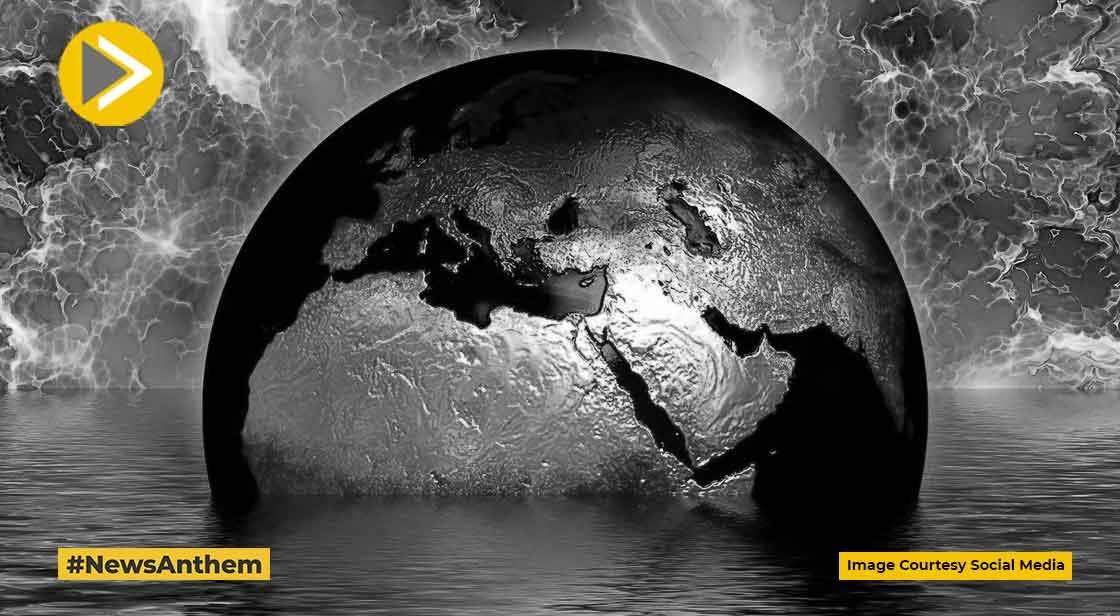Ocean Heat Absorption Has Quadrupled, Escalating Climate Change: New Study

News Synopsis
The alarming acceleration of ocean warming has become a major concern for climate scientists, as new research reveals that the rate of heat absorption by the world's oceans has quadrupled over the last 40 years.
This dramatic increase is significantly intensifying the effects of climate change, given that oceans act as the Earth's largest heat reservoir.
Scientists caution that if fossil fuel consumption remains unchecked, global warming will continue to escalate at an even faster rate in the coming decades.
The consequences of this rapid warming extend far beyond rising sea levels, as it is now directly linked to intensified extreme weather events, shifts in global climate patterns, and disruptions in food security.
Ocean Temperatures Rising at an Alarming Rate
A groundbreaking study published in Environmental Research Letters sheds light on the escalating pace of ocean temperature rise. The research states that while the rate of ocean warming was 0.06°C per decade in the 1980s, this figure has now jumped to a staggering 0.27°C per decade.
Climate models predict that this acceleration will persist over the next two decades, with even more drastic changes anticipated if carbon emissions are not curbed.
Earth’s Energy Imbalance Worsens Due to Climate Change
Another critical finding from the study highlights the doubling of Earth's energy imbalance in the last 20 years. This imbalance occurs when the planet absorbs more heat than it releases—a direct consequence of the rise in greenhouse gas concentrations such as carbon dioxide (CO₂) and methane (CH₄).
Christopher Merchant, Professor of Ocean and Earth Observation at the University of Reading, emphasized in an interview with Live Science that these trends indicate that climate change is advancing more rapidly than scientists previously anticipated.
What is Earth’s Energy Imbalance?
-
It refers to the difference between the amount of energy Earth absorbs from the Sun and the energy it emits back into space.
-
The surplus energy remains trapped due to greenhouse gases, leading to warmer oceans and rising global temperatures.
-
This imbalance fuels climate instability, stronger hurricanes, and disruptions in atmospheric circulation patterns.
Impacts of Ocean Warming: Rising Seas, Extreme Weather, and Food Security Risks
The rapid warming of oceans is not just a statistic—it has real-world consequences. Scientists warn that this trend will worsen extreme weather patterns, accelerate glacier and ice sheet melt, and threaten global food systems.
1. Rising Sea Levels
As ocean temperatures rise, thermal expansion occurs, causing seawater to expand and increase in volume. This, coupled with the melting of polar ice caps, results in rising sea levels, which:
-
Increase the risk of coastal flooding in low-lying areas.
-
Lead to the submersion of small island nations.
-
Disrupt marine ecosystems and biodiversity.
2. Intensified Extreme Weather
Warmer oceans contribute to:
-
More powerful and frequent hurricanes, typhoons, and cyclones.
-
Severe droughts and heatwaves, altering precipitation patterns.
-
Unpredictable monsoons and heavy rainfall, leading to floods and landslides.
3. Threats to Global Food Security
-
Disruptions in marine life: Rising temperatures affect fish populations, reducing seafood availability.
-
Declining crop yields: Warmer climates influence agricultural productivity, leading to food shortages.
-
Acidification of oceans: Increased CO₂ levels result in ocean acidification, which harms coral reefs and marine ecosystems.
The Need for Urgent Climate Action
Scientists stress that urgent and large-scale reductions in fossil fuel consumption are necessary to prevent further ocean warming and climate destabilization. Immediate action must focus on:
-
Transitioning to renewable energy sources like solar, wind, and hydroelectric power.
-
Strengthening climate policies to reduce global carbon emissions.
-
Investing in climate adaptation strategies to protect vulnerable coastal communities.
Without substantial intervention, the climate crisis will escalate further, putting ecosystems, economies, and human lives at risk.
Conclusion: A Critical Moment for Climate Action
The rapid acceleration of ocean warming is a clear warning sign that climate change is advancing at an alarming pace. With the heat absorption rate quadrupling over the past four decades, the impacts on sea levels, extreme weather patterns, and food security are becoming increasingly severe.
Scientists emphasize that urgent and decisive action is needed to reduce greenhouse gas emissions, transition to renewable energy sources, and strengthen global climate policies. Without immediate intervention, the consequences of ocean warming will become even more devastating, threatening ecosystems, economies, and human livelihoods worldwide.
This is a crucial moment for governments, industries, and individuals to take responsibility and implement solutions to curb fossil fuel dependency and mitigate climate risks. The future of our planet depends on the actions we take today.
You May Like









